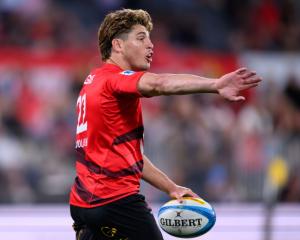As part of new rules introduced by the New Zealand Rugby Union this year, all junior rugby, below first XV level, has to have all players in a 22-player squad play at least half a game each.
NZRU general manager community rugby and provincial unions Brent Anderson said research carried out last year asked teenage players what they wanted changed in the way the game was played.
''One of the big things that they told us was about the lack of playing time. They didn't want to get five minutes at the end of the game or chucked on with 15 minutes to go,'' Anderson said.
''When you are training for up to three hours a week with two trainings a week then you will want to play. What is the motivation to keep doing that if you are not playing? We want people playing as much as possible.''
He admitted there was always going to be tension when something was changed but people could see the reasons why the policy had been introduced.
Anderson said across the board from when players started at year 9 to when they played in their first year after leaving school, about half of the players dropped out, which was a big number.
That came on the back of an 8% drop-off in players in the teenage years in the past five years, going from about 44,000 to about 41,000.
Many saw flaws in the half-game idea, as teams with big squads would undergo mass changes at halftime.
Teams would not be competitive, good players would leave the game as they got limited game time and it would be too hard to police.
Players left the sport for other reasons than a lack of playing time.
Rolling substitutions throughout the game were also banned under the new rules.
Anderson said rolling substitutions never worked as all that did was allow coaches to manipulate players.
''When you have 15 on and you have to take some off then that is a coaching challenge. In terms of coaching that will help the lesser players get up to speed and the coach will then feel confident to put them on,'' he said.
He said good players should have to spend some time on the sideline and be good team-mates.
''It does not hurt the good players to be on the sideline and watch their team-mates play. Over the course of a season, the coach can get all of the players better.''
The survey of 1600 teenagers also found younger players wanted good quality coaching, so the union had introduced courses to improve coaches' skills.
Teenagers also wanted a meaningful competition, and this would happen if more players were involved, Anderson said.
They also did not like their peers misbehaving at training.
Anderson said adults often underestimated teenagers, and teenagers liked a fair contest and even games.
''There have been some people who do not understand it completely, but the feedback we are getting from coaches and teachers is that it is great.''












